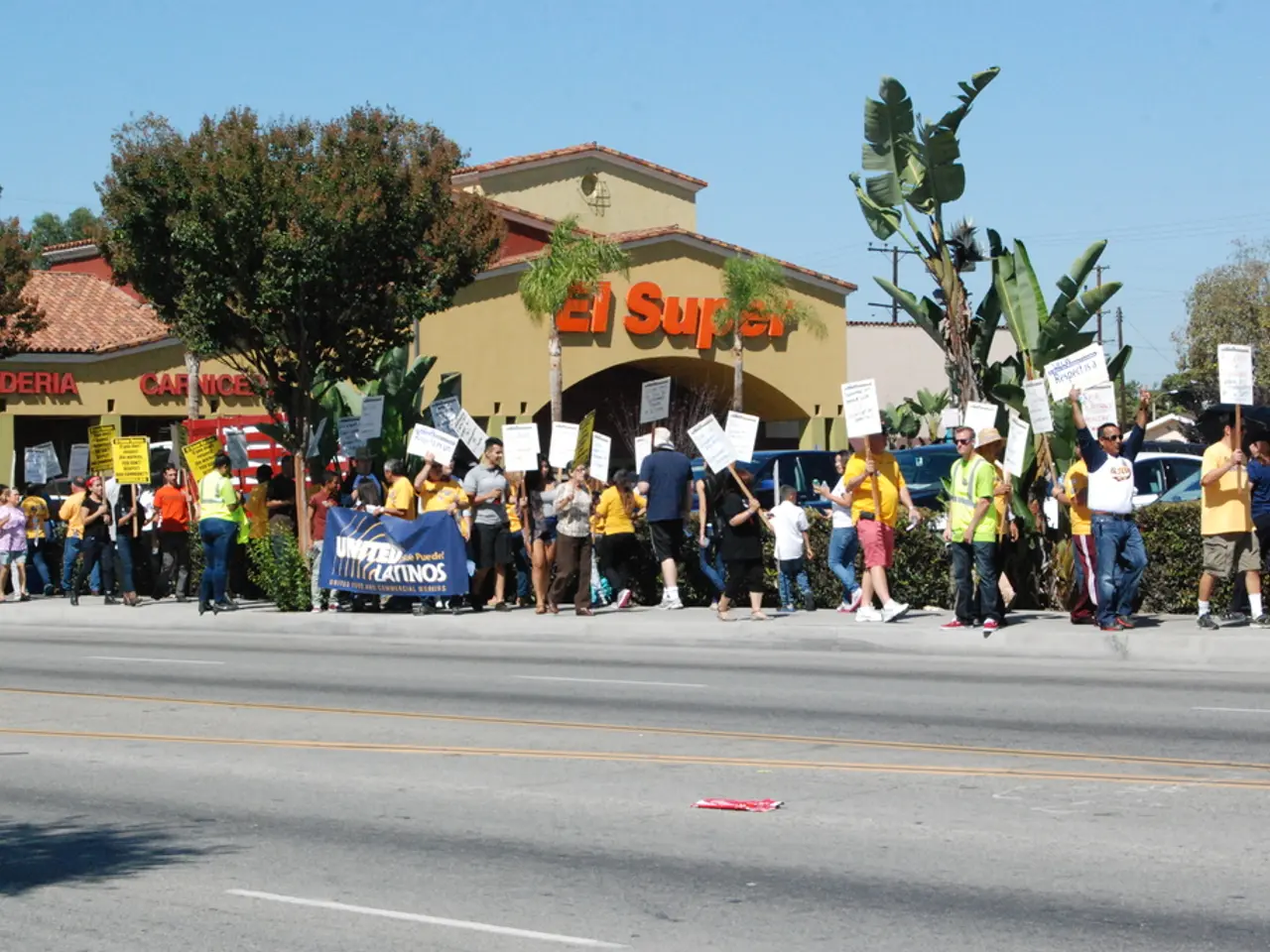Trump's Des Moines speech sparks controversy following his use of a controversial, antisemitic slur
In a recent speech in Des Moines, Iowa, President Donald Trump used the term "Shylock" to describe banks or bankers, a move that has been widely criticized as antisemitic by the Anti-Defamation League (ADL). The ADL's statement, made public for the purpose of expressing criticism, highlighted the historical antisemitic connotations of the term.
The character of Shylock originates from William Shakespeare's play "The Merchant of Venice," written between 1596 and 1598. In this play, Shylock is a Jewish moneylender who seeks a pound of flesh as collateral for a loan, symbolizing the negative stereotypes of Jews prevalent during that time. During the Elizabethan era, Jews were often stereotyped and forced into specific occupations like moneylending due to restrictions and social prejudice.
The character of Shylock has been interpreted as reflecting and reinforcing antisemitic attitudes. His portrayal as a greedy and vengeful figure perpetuates the stereotype that Jews are overly materialistic and manipulative. This stereotype has been deeply ingrained in European culture, contributing to the historical persecution and marginalization of Jewish communities.
In recent years, the term "Shylock" has been used in political contexts, drawing criticism for its antisemitic connotations. President Trump, in his speech, compared banks to Shylock, a character that has been associated with antisemitic stereotypes. Trump claimed he was unaware of the term's history, but his use of it sparked significant backlash, highlighting the ongoing sensitivity around antisemitic tropes in political discourse.
Similarly, in 2014, then-Vice President Joe Biden used the term "Shylocks" in a speech, later acknowledging it as a "poor choice of words." These instances underscore the challenges of using historical terms in contemporary politics without inadvertently perpetuating harmful stereotypes.
The ADL views President Trump's use of the term "Shylock" as extremely offensive and dangerous. The organization has emphasized that such language underscores the persistence of antisemitic conspiracies and stereotypes in society. As leaders continue to grapple with the responsibility of their words, the historical context of "Shylock" serves as a reminder of the need for sensitivity and awareness in public discourse.
The rise in antisemitic incidents and hate crimes makes the use of terms like "Shylock" in modern political speech particularly problematic. The ADL has emphasized that such language contributes to the perpetuation of harmful stereotypes and can exacerbate tensions within society. As a result, it is crucial for political leaders to exercise caution and mindfulness when choosing their words to avoid unintentionally causing harm.
The characterization of Shylock, with his portrayal as a greedy and vengeful Jewish moneylender, has historically been a reflection and reinforcement of antisemitic stereotypes in politics. President Trump's comparison of banks to Shylock in his speech, using a term laden with antisemitic connotations, has sparked significant backlash and raised concerns about the perpetuation of such stereotypes in contemporary political discourse.








